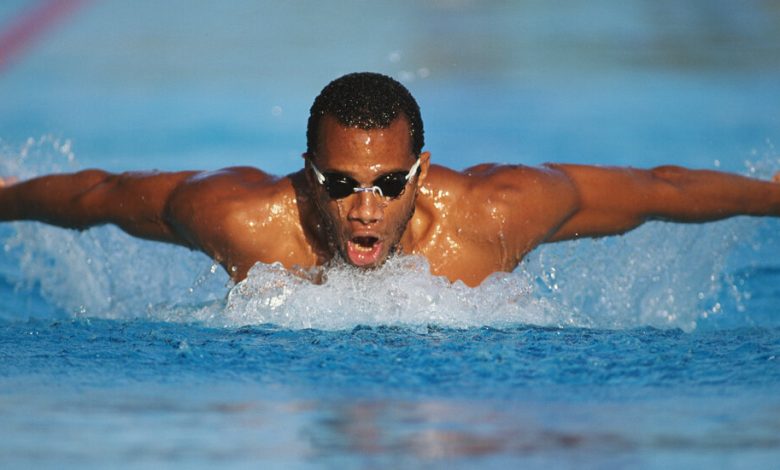No Longer Just ‘Goggles and a Suit’: Anthony Nesty on How Swimming Has Changed

Anthony Nesty has been breaking barriers in swimming for decades. In 1988, he became the first Black person to win an Olympic gold medal in swimming, representing Suriname in the 100-meter butterfly. Last month, he was named the men’s swimming coach for the United States for the 2024 Paris Games, making him the first Black head coach of a U.S. Olympic swimming team.
Nesty, 55, who is also the head coach at the University of Florida, spoke about a coach’s role, team chemistry and how social media and sponsorships have changed the sport.
This interview has been edited and condensed.
The American swimmers are among the best in the world, and they all have personal coaches. So what does the Olympic coach do?
Even though there are probably 32 individuals, my big thing is, we’re all one team. We all have to support each other. We have to be enthusiastic; we have to bring good energy.
It’s an individual sport. Why is team togetherness important?
I think chemistry, empathy for each other is imperative to have, especially when you go up against the world’s best. I think that gives the U.S. the edge, because they have that in college.
They know how important relays are. How important getting behind each other, being a team, walking on deck at the same time, having the same uniform on are.
I remember being on the other side. Being the only swimmer from Suriname, seeing the U.S. walk on deck, you’re like, “Wow.” It’s just the presence.
How would you compare coaching at a high level to swimming at that level? Do you ever want to jump in the pool and do it for them?
Not with all the aches and pains in my body!
I think the feelings are similar. Coaches get nervous; they get stress.
As a swimmer, you have to be confident in what you do. As a coach, you have to be confident in leading your team.
The most stressful part for us as coaches is probably the last 10 days. You’re preparing to do something great. And that comes with a lot of pressure.
Especially nowadays. I didn’t have all the social media, all the noise. It seems like every athlete has an Instagram page. People follow them, know their personalities, their history.
You have the sponsorships. Back when I swam, they gave you a pair of goggles and a suit, and you were good to go. Now there are a lot of incentives to perform at a high level, so the pressure is immense.
The U.S. men won eight gold medals at each of the last three Olympics. Do you have a specific goal for these Games?
As a coach, I’m very greedy for great performances.
My message to the team is to win as many golds as possible. If eight is the magic number, I want to win nine!
At the 2023 world championships, when you were an assistant coach, the men won only two golds in Olympic events. There were some mitigating factors, like the absence of the seven-time Olympic gold medalist Caeleb Dressel. But is that total concerning to you?
No, there were a lot of factors. Typically the U.S. is not as good the year before the Olympics. People say they’re just putting in the work, not as focused as they need to be, so they can be ready for the summer.
The world championships was a big meet, but it also wasn’t a big meet, if that makes sense. Because the next meet, the Olympics, is the big meet.
Throughout your career, you’ve broken barriers. Swimming remains a mostly white sport. What has changed since the late 1980s?
U.S.A. Swimming does a very nice job of having select camps for athletes of color and different backgrounds. My daughter Lillie went to one and came back so fired up.
If you look around the N.C.A.A. and high schools, there are lots more athletes of color competing, which is great to see. It has to start somewhere. I was the first one, but after that there were athletes of color swimming really well.
Are we there yet? No, but I think we’re getting there.
What are the last things you say to a swimmer before he gets in the pool?
Strategic things I talk about a couple days before. Not the day of — it’s too late.
So, “Are you ready? Do you need anything? Make sure you warm up well, swim down well.” The things a parent might say.
And what might you say to an athlete after a poor performance?
All you can do is encourage them. Making the Olympic team for the U.S. is a big deal; it’s one of the hardest things to do. Just being at the meet is such a great accomplishment.



